History, Memory, and State-Sponsored Violence. Time and Justice

Modern historiography embraces the notion that time is irreversible, implying that the past should be imagined as something ‘absent’ or ‘distant.’ Victims of historical injustice, however, in contrast, often claim that the past got ‘stuck’ in the present and that it retains a haunting presence. History, Memory, and State-Sponsored Violence is centered around the provocative thesis that the way one deals with historical injustice and the ethics of history is strongly dependent on the way one conceives of historical time; that the concept of time traditionally used by historians is structurally more compatible with the perpetrators’ than the victims’ point of view. Demonstrating that the claim of victims about the continuing presence of the past should be taken seriously, instead of being treated as merely metaphorical, Berber Bevernage argues that a genuine understanding of the ‘irrevocable’ past demands a radical break with modern historical discourse and the concept of time.
By embedding a profound philosophical reflection on the themes of historical time and historical discourse in a concrete series of case studies, this project transcends the traditional divide between ‘empirical’ historiography on the one hand and the so called ‘theoretical’ approaches to history on the other. It also breaks with the conventional ‘analytical’ philosophy of history that has been dominant during the last decades, raising a series of long-neglected ‘big questions’ about the historical condition – questions about historical time, the unity of history, and the ontological status of present and past –programmatically pleading for a new historical ethics.

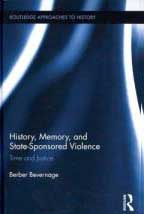
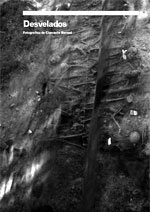

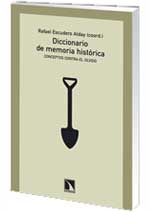

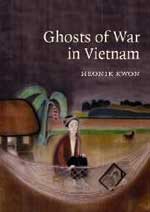

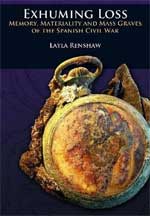
 This book examines the contested representations of those murdered during the Spanish Civil War of the 1930s in two small rural communities as they undergo the experience of exhumation, identification, and reburial from nearby mass graves. Based on interviews with relatives of the dead, community members and forensic archaeologists, it pays close attention to the role of excavated objects and images in breaking the pact of silence that surrounded the memory of these painful events for decades afterward. It also assesses the significance of archaeological and forensic practices in changing relationships between the living and dead. The exposure of graves has opened up a discursive space in Spanish society for multiple representations to be made of the war dead and of Spain’s traumatic past.
This book examines the contested representations of those murdered during the Spanish Civil War of the 1930s in two small rural communities as they undergo the experience of exhumation, identification, and reburial from nearby mass graves. Based on interviews with relatives of the dead, community members and forensic archaeologists, it pays close attention to the role of excavated objects and images in breaking the pact of silence that surrounded the memory of these painful events for decades afterward. It also assesses the significance of archaeological and forensic practices in changing relationships between the living and dead. The exposure of graves has opened up a discursive space in Spanish society for multiple representations to be made of the war dead and of Spain’s traumatic past.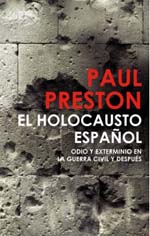
 Durante la Guerra Civil española, cerca de 200.000 hombres y mujeres fueron asesinados lejos del frente, ejecutados extrajudicialmente o tras precarios procesos legales, y al menos 300.000 personas perdieron la vida en los frentes de batalla. Un número desconocido fueron víctimas de los bombardeos y los éxodos que siguieron a la ocupación del territorio por parte de las fuerzas militares de Franco. En el conjunto de España, tras la victoria definitiva de los rebeldes a finales de marzo de 1939, alrededor de 20.000 republicanos fueron ejecutados. Muchos más murieron de hambre y enfermedades en prisiones y campos de concentración, donde se hacinaban en condiciones infrahumanas. Otros sucumbieron a las duras condiciones de los batallones de trabajo. A más de medio millón de refugiados no les quedó más salida que el exilio, y muchos perecieron en los campos de internamiento franceses. Varios miles acabaron en los campos de exterminio nazis. Todo ello constituye lo que a mi juicio puede llamarse el «holocausto español». El propósito de este libro es mostrar, en la medida de lo posible, lo que aconteció a la población civil y desentrañar los porqués.
Durante la Guerra Civil española, cerca de 200.000 hombres y mujeres fueron asesinados lejos del frente, ejecutados extrajudicialmente o tras precarios procesos legales, y al menos 300.000 personas perdieron la vida en los frentes de batalla. Un número desconocido fueron víctimas de los bombardeos y los éxodos que siguieron a la ocupación del territorio por parte de las fuerzas militares de Franco. En el conjunto de España, tras la victoria definitiva de los rebeldes a finales de marzo de 1939, alrededor de 20.000 republicanos fueron ejecutados. Muchos más murieron de hambre y enfermedades en prisiones y campos de concentración, donde se hacinaban en condiciones infrahumanas. Otros sucumbieron a las duras condiciones de los batallones de trabajo. A más de medio millón de refugiados no les quedó más salida que el exilio, y muchos perecieron en los campos de internamiento franceses. Varios miles acabaron en los campos de exterminio nazis. Todo ello constituye lo que a mi juicio puede llamarse el «holocausto español». El propósito de este libro es mostrar, en la medida de lo posible, lo que aconteció a la población civil y desentrañar los porqués. 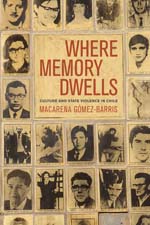

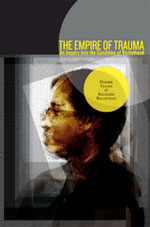
 By Didier Fassin, Richard Rechtman, Rachel Gomme
By Didier Fassin, Richard Rechtman, Rachel Gomme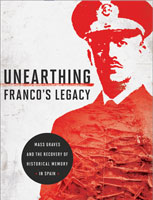

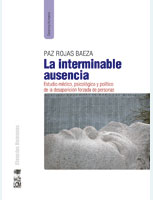
 Como libro del mes de diciembre quiero proponer «La interminable ausencia. Estudio médico, psicológico y político de la desaparición forzada de personas» de Paz Rojas Baeza, 2009, Santiago de Chile, LOM Ediciones.
Como libro del mes de diciembre quiero proponer «La interminable ausencia. Estudio médico, psicológico y político de la desaparición forzada de personas» de Paz Rojas Baeza, 2009, Santiago de Chile, LOM Ediciones.